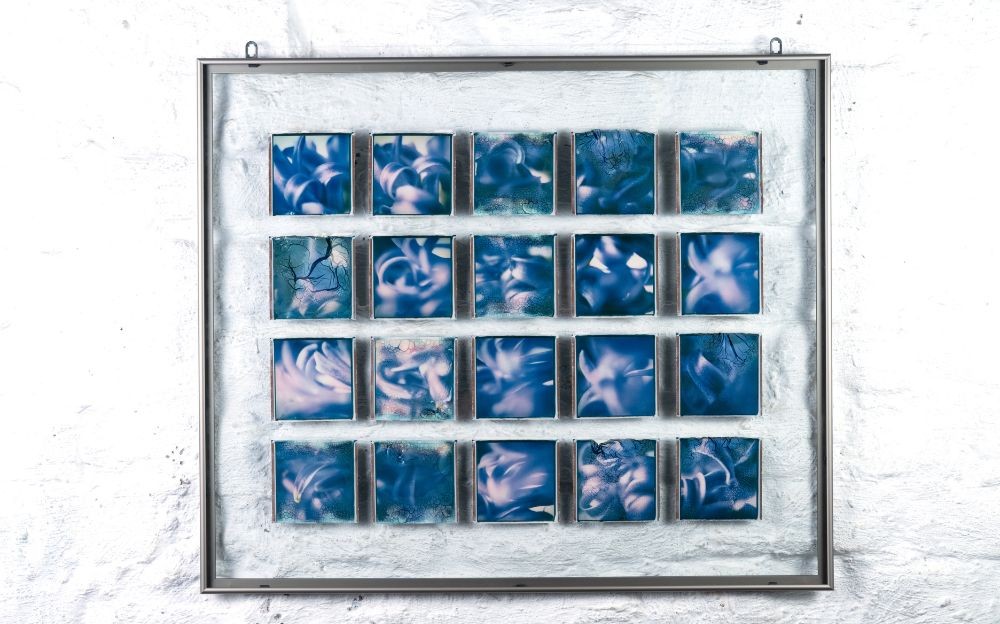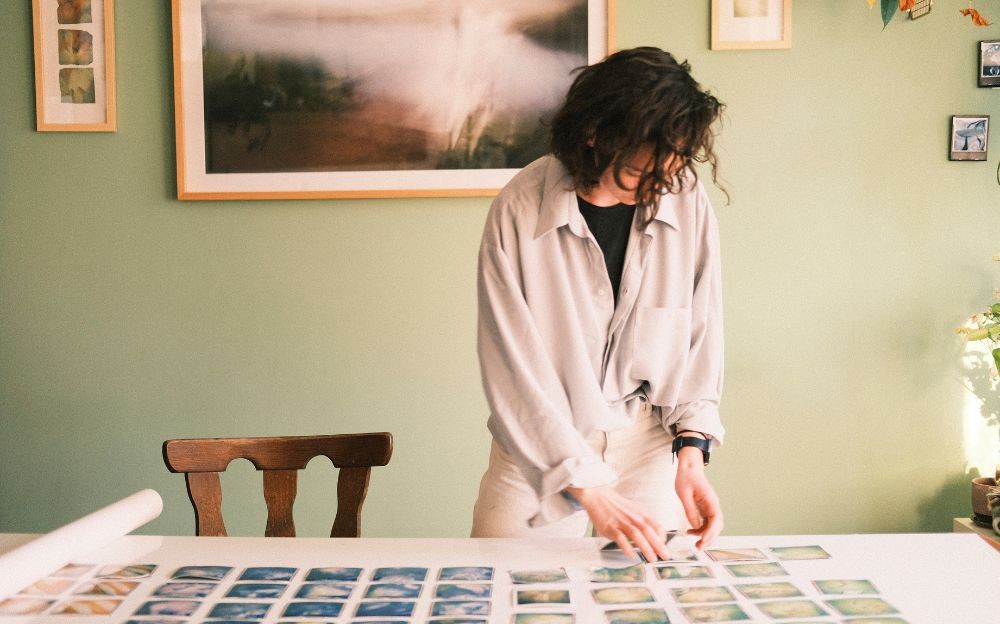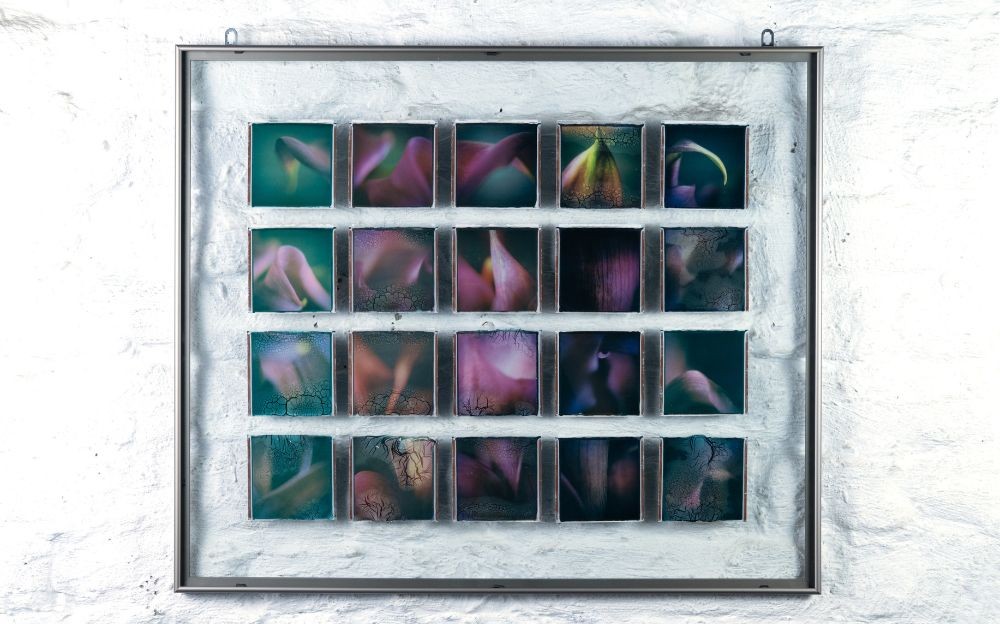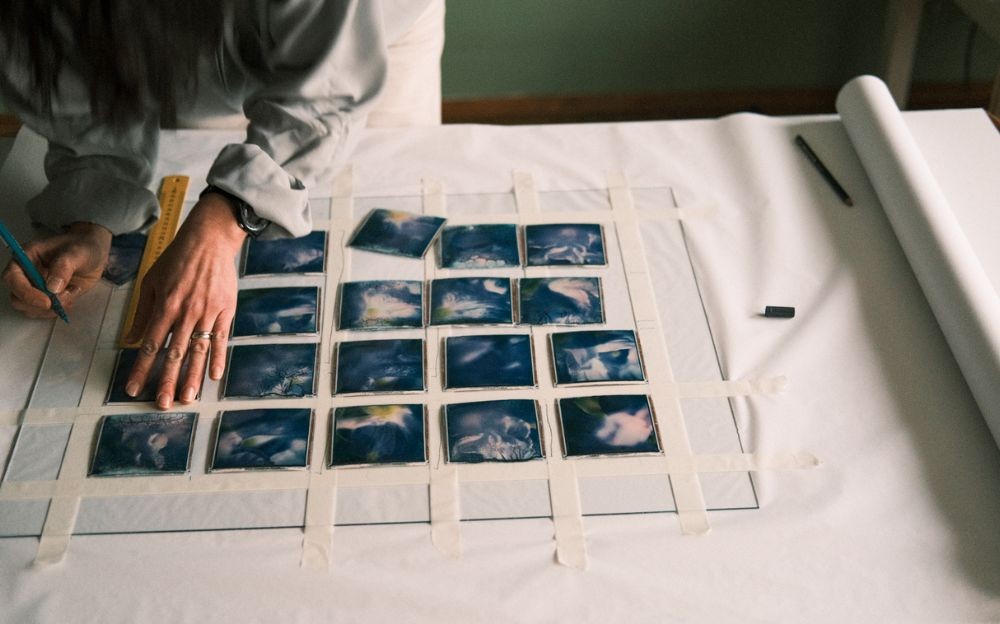 4
4
In order to express the diversity of women's essence, visual artist Johanna Trayanova uses botanical shapes, which she recreates with photographic skills. Her narration is allegorical – it draws the viewer in, making them an active participant. "Abstractness and my art go hand in hand, as I try to convey an emotion to be interpreted by the individual, rather than concreteness put into a frame," she says.
When she became a mother, a vision opened up in front of Johana Trayanova, in which she saw how the woman splits into many pieces and at the same time remains a whole. It is this most intimate moment that inspired her to explore the roles and diversity of women's feelings, moods, perceptions. In the exhibition "Immersion: She", located in the cultural space "Bobina" in the capital city, the artist recreates nine different states in mosaic style, as each frame contains 20 photographs.

"My idea was for the photograph to be made up of small particles, reminiscent of woman's nature, but not in the sense of chaos, but rather her desire to give as much as possible and reach her limit,” the artist says. “For example, if the woman is love, she wants to be the best love and in all ways - a woman is not only intimate love, but also love for a child, love in a professional sense, love as an attitude to every single detail of life."
Johana Trayanova reached towards photography through... words. In 2018, she graduated from the National Academy of Theatre and Film Arts with a major in "Dramaturgy", which unlocked in her the desire to tell her stories in images. "I look for philosophical ideas in myself and all my art is very personal; it always reveals a part of my inner world", the visual artist told Radio Bulgaria.

Opening her own veil, through the contours of photographic images, Johana Trayanova focuses on female identity to show us mysterious, almost elusive forms.
"The woman is a force because she is ready to turn the whole world in the name of her love,” the author introduces us to the enigmatic images. “Another side that was revealed to me in the process of making the mosaics is that a woman is an obsession, a woman is a drug. She can be all these to a man in love who is capable of thinking about her obsessively, of wanting to own a part of her."

Johana Trayanova illustrates the dizzying transformations of the woman, peering into a single detail – a flower leaf, its color shade, or some peculiarity. "When you photograph a flower with the camera you want to go deeper and deeper, and it really becomes a very intimate process between the person and the plant," she says. And so that the imagination does not stumble into a galactically distant abyss, she places key messages, which keep the viewer in the implied universe:
"I really like the calla lily; I chose it because of its shape and dark purple color," Johana Trayanova says. “After reading about it, I realized that it is actually a poisonous flower, but it also serves as an antidote. For example, if you are bitten by a poisonous snake, the flower turns into a cure. That's why I presented it in a somewhat predatory way with the idea that the woman means protection."

In order to infuse strength, color, and sometimes the much-needed bubbles of coded messages into each frame, Johanna Trayanova uses an old Polaroid. She sometimes leaves images to age in boxes with water. "I really like the element of slight damage, of ambiguity, which makes it difficult for the viewer to read the image so it gives them the freedom to look into themselves," she adds. Deyan Tsviatkov's sound paintings also lead the viewer on this path - an invariable part of the overall audio-visual space which the artists strive to "immerse" the visitors into.
Photos:Johana Trayanova, Diana Tsankova
The Bogdan Khmelnitsky Melitopol State Pedagogical University, together with the Shumen University "Bishop Konstantin Preslavsky", organize the ninth International Bulgarian readings "Youth in Science without Borders", which will be..
"Bulgarians decorate the world," tells us Emilia Juеcker, who has been living in Germany for decades. The diversity of our cultural traditions, literature, and folklore is at the heart of the seventh annual meeting "Bulgarian Speech, Music, Colors and..
The second edition of the Festival of Bulgarians and Descendants of Bulgarians in Argentina will be held on November 30 at the San Juan Bosco School in the Argentine city of Comodoro Rivadavia. “This Saturday, our beloved society will welcome..

+359 2 9336 661
